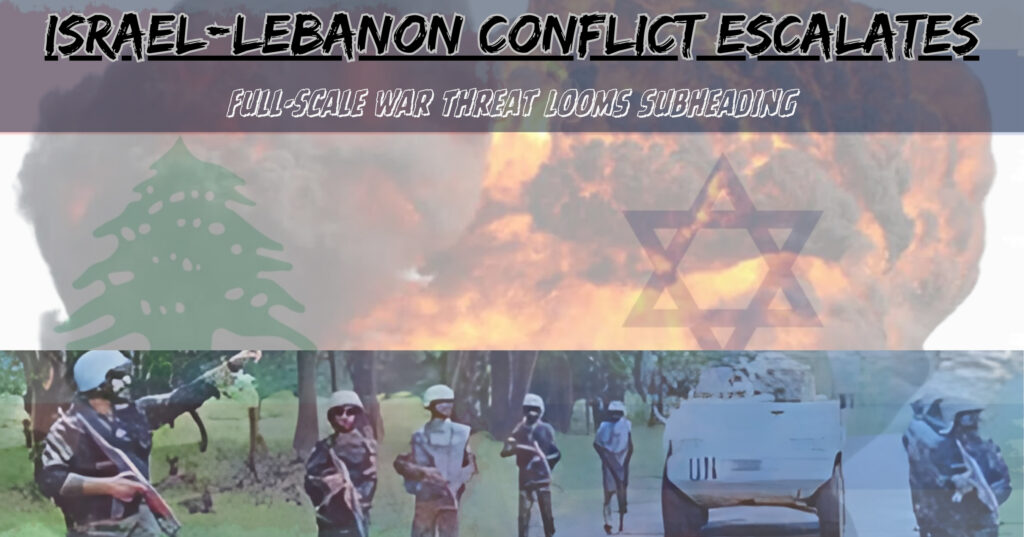Rising Tensions: Israel and Hezbollah Conflict
Recent warnings from the United Nations highlight a looming threat of full-scale war in the Israel-Lebanon Conflict 2024, a development with significant global implications. The conflict is primarily driven by hostilities between Israel and Hezbollah, a militant group based in southern Lebanon and backed by Iran. Hezbollah has been launching continuous attacks on northern Israeli cities, leading to a severe escalation of tensions.
Historical Context: Israel-Lebanon Relations
The animosity between Israel and Lebanon dates back decades. In 1978, Israel invaded Lebanon during the country’s civil war, aiming to eliminate Palestinian militant groups operating from Lebanese territory. This conflict led to Israel occupying a large part of southern Lebanon. Despite withdrawing in 2000 under international pressure, Israel has maintained that Hezbollah’s presence in Lebanon poses a significant threat to its security.
The Role of Hezbollah
Hezbollah, formed in the 1980s with Iranian support, has been a persistent thorn in Israel’s side. The group, which the U.S. and several other countries designate as a terrorist organization, has engaged in numerous clashes with Israeli forces. The current conflict intensified after the October 7, 2023, Hamas attack on Israel, prompting an Israeli military response in Gaza. Taking advantage of Israel’s focus on Gaza, Hezbollah increased its attacks from Lebanon, exacerbating the situation further.
UN Peacekeeping and the Blue Line
The UN established a peacekeeping force in Lebanon in 1978 to maintain stability in the region. Following Israel’s withdrawal in 2000, a temporary border known as the Blue Line was established. Despite the presence of UN peacekeepers, the Blue Line has been ineffective in preventing rocket attacks from Hezbollah. The UN forces can only intervene to stop direct military incursions but lack the capability to intercept missile attacks.
The Current Situation
The situation in northern Israel has deteriorated, with numerous Israeli citizens fleeing the area due to incessant rocket fire. The Israeli government holds the Lebanese state responsible for Hezbollah’s actions, suggesting that any future military action against Hezbollah might target broader Lebanese territory.
Global Implications and the Role of the United Nations
The potential for a full-scale war raises significant concerns for global peace and security. The UN has urged de-escalation, emphasizing that the presence of peacekeepers is crucial for civilian protection. However, the current dynamics suggest that if both parties are determined to escalate, the UN peacekeepers might be unable to prevent a broader conflict.
Conclusion: A Volatile Future
The Middle East stands on a knife-edge, with a single spark potentially igniting a large-scale war. The international community, particularly the United States, must monitor these developments closely. Diplomatic efforts are urgently needed to prevent a regional conflict that could have devastating global repercussions.

